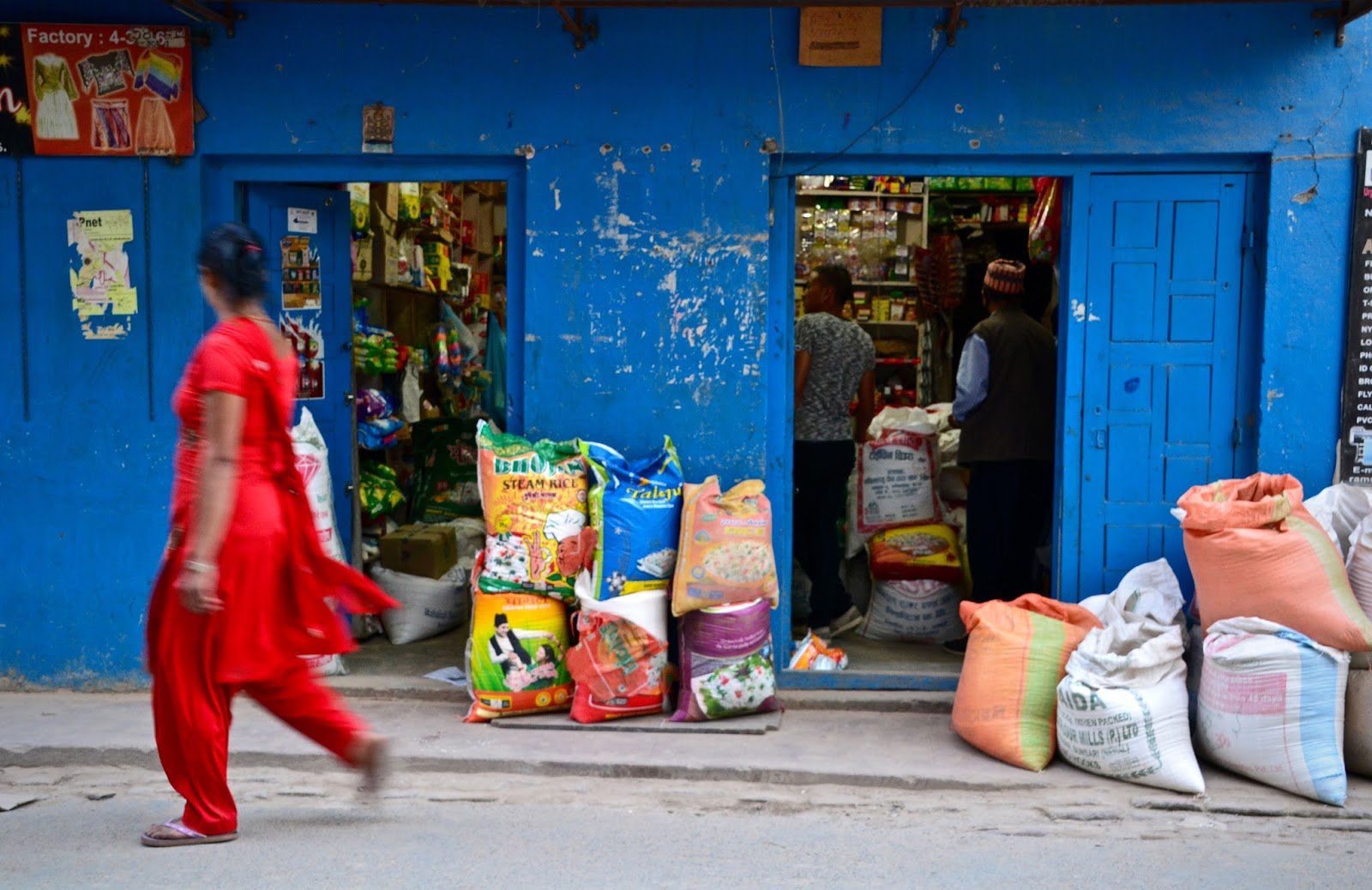
On the second afternoon I met a principal of a school from a small village close to the epicentre of the first quake. The whole village was destroyed. Including the school. He had come to Kathmandu to talk options and seek help for his village.
“We are starting from zero. We need all the help we can get.”
He explained that he met an Australian man two weeks ago who volunteered to fund and assist building a small temporary school shelter, but it’s just the start. Start of everything. Water pipes have been broken and homes turned to rubble.
“If the children can’t get fresh water, they will get sick and we won’t be able to teach them. If the children don’t have homes, they will be too tired to learn. If they children don’t have food, they will be distracted. Everything works together. So I need help to fix everything. We are starting from zero.

“It’s like if a woman is pregnant. If it is a boy or girl, it doesn’t matter, and we are happy we are giving birth to it.”
I looked at him quizzically.
“The earthquake is the pregnancy. We have to be happy it’s come and work with it.”
I asked him what sort of support the government has given for the school.
“The government has given 25,000 rupees to each school. But that is nothing.” (Note 25,000 rupees is the equivalent of $250 USD). In relative terms, this is about the cost of one shelter, which could fit a small family.
“We need people to come with supplies to the village. To meet the people and bring housing supplies. We need civil engineers. We need people to help with the school and homes. The monsoon is coming and that is a very big problem for us.”
Another man I met whose family is in a village 75 kms from Kathmandu says his family is fine, but the village was destroyed. He has moved his family to another location for the monsoon season and then they will look at rebuilding the village and homes after the monsoon. This is a family that is fortunate to be able to move.
Another man I met by wandering into a closed restaurant. He invited me to sit and talk. We had tea and he passionately told me about all the things he wants and needs to do for his village and community which were right at the epicentre of the earthquake. I ended up spending hours with him and subsequently helped him draft a funding submission to an NGO. I will be writing more about him and his work in future posts.
And then there was a quake. Yup.
I was in bed at about 10pm at night (ok, ok, I was tired!). I felt the walls move and loud sounds. At first I thought it was my new neighbours in the room next to mine, being very loud, like a kind of slamming doors and such. But then I realised, no neighbours could move the whole building. My room and bed moved completely, taking me with it on this ‘I’m more powerful than you’ swirling motion around my room. Oh, so this is a quake!
It was an odd feeling having everything move around me and involuntarily moving me with it. And the whole six storeys of the hotel I was in.
It was an odd feeling having everything move around me and involuntarily moving me with it. And the whole six storeys of the hotel I was in.
I figured it mustn’t be a huge one or that it could have been far away since it seemed to last for only about a minute or so, but certainly impossible to miss! So I stayed in bed. I found out it was a 4.5 the next day and not too far away from Kathmandu.
The following night I woke up at 4am, but I didn’t know why, everything was so silent. Later that day I heard there was another quake around that time. The continuing earthquakes like this, even 4.3 – 4.5 are uncommon for Nepal. Locals say there was a 4.5 quake in 2011, but that seems to be the only in recent memory, which didn’t cause a whole lot of damage.
The wrap
I guess one could describe my first few days in Kathmandu as being very ‘full’. Full of people helping and seeking help. A few quakes.
And momos. Don’t forget the momos. I love momos. Always have, always will. And I can eat them to my hearts’ content here.





Leave a Reply
You must be logged in to post a comment.